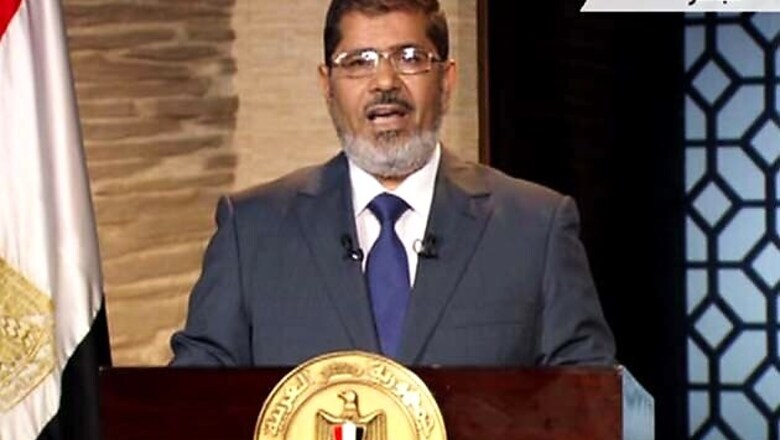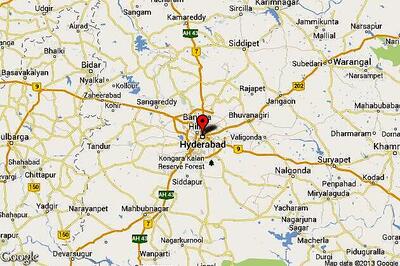
views
In his first remarks since Mohammed Morsi's ouster, Egypt's military chief on Sunday said the armed forces acted according to the will of the people because the former Islamist government had stumbled.
Gen. Abdel-Fattah el-Sissi made his comments on the eve of another round of mass protests by Morsi's Islamist supporters who have accused the military of staging a coup and demanded the reinstatement of Egypt's first democratically elected president.
Also on Sunday, Egypt's chief prosecutor froze the assets of Mohammed Badie, the leader of the Muslim Brotherhood, the group from which Morsi hails, and at least 13 other senior members of the Islamist group.
The US State Department's No. 2 diplomat, William Burns, arrived in Cairo on Sunday, the first visit by a high-level American official since Morsi's ouster.
Burns was scheduled to meet with Egypt's interim government officials as well as civil society and business leaders during his two-day visit. The State Department says Burns would underscore in his meetings US support for the Egyptian people and a transition leading to an inclusive, democratically elected civilian government.
The July 3 overthrow of Morsi has come under criticism from many in the international community because of concerns about its effect on Egypt's efforts to become a democracy following the February 2011 toppling of autocrat Hosni Mubarak's regime in a popular uprising.
El-Sissi said the Supreme Council of the Armed Forces respected the June 2012 elections that propelled Morsi to power with a narrow victory and tried to stay out of politics.
But he said the military could no longer stand on the sidelines as millions of Egyptians took to the streets to call for the Islamist leader to step down because of allegations he was abusing his power.
El-Sissi said he reached out to Morsi through two envoys, including then Prime Minister Hesham Kandil, on more than one occasion urging him to hold a referendum on whether voters still supported his presidency, but the suggestion was rejected out of hand.
"No one is a guardian of the public, and no one can dictate or force a path or thought that they don't accept," el-Sissi said in remarks to officers, which were reported by state-run media.
"The armed forces sincerely accepted the choice of the people, but then political decision-making began stumbling and the armed forces took the view that any correction or adjustment must come from only one source and that is the legitimacy of the people."
The decision led to mass demonstrations by his supporters and bloody clashes with security forces and rival protesters.


















Comments
0 comment